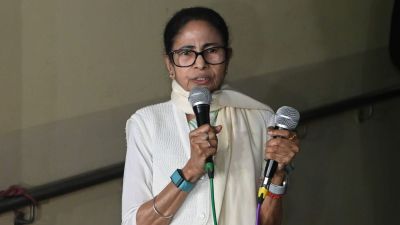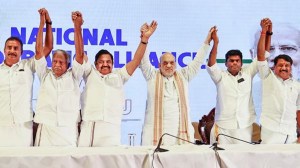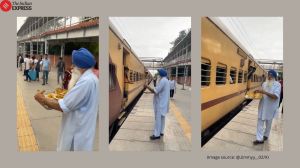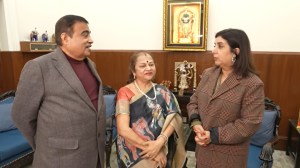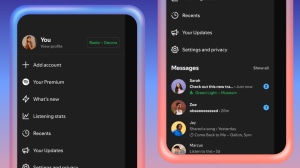Delhi Metro slams Reliance Infra over mess
The blame game between Delhi Metro and Reliance Infra over suspension of Airport Metro Express services came out in the open today with DMRC accusing the concessionaire of not conducting regular inspections.
The blame game between Delhi Metro and Reliance Infra over suspension of Airport Metro Express services came out in the open today with DMRC accusing the concessionaire of not conducting regular inspections.
After maintaining stoic silence for nearly a month,the Delhi Metro said Reliance Infra did not conduct timely inspections despite repeated reminders from it and that the repair work could have been carried out without hampering the Metro operations had these defects been noticed earlier.
8220;As regards the issue of the civil defects noticed on the elevated section of the corridor,it may be mentioned that as per the concessionaire agreement,the concessionaire was supposed to carry out regular inspections to monitor the civil structures.
8220;However,timely inspections were not carried out despite repeated reminders from DMRC. Had these defects been noticed and pointed out earlier,then the repair work could have been carried out without hampering the Metro operations,8221; Jitendra Tyagi,Director Works,DMRC,said in a statement here.
The Reliance Infra,in its response,said when it detected that the clips were developing cracks it took a number of actions like imposing Speed restriction on sections wherever the number of cracked clips were large.
Delhi Metro and Reliance Infra have been at loggerheads ever since the 23-km high-speed link was closed down temporarily on July 8 after the concessionaire found faults on the civil structure.
Delhi Metro is currently carrying out the repair works on the civil structure.
On the issue of Reliance Infra saying that Delhi Metro forced it to procure clips from Vossloh which are found to be faulty now,Tyagi said the moment faults were noticed in the clips on the railway tracks,necessary speed restrictions were imposed by DAMEPL and the required repair work was carried out without hampering Metro operations.
8220;DMRC never forced or instructed the concessionaire to adopt any particular track system for the Airport Express corridor. Initially,the concessionaire suggested the 8216;Single Fast Clip SFC8217; system to DMRC,which was not found suitable for a high speed corridor.
8220;Subsequently,DMRC suggested four track systems to the concessionaire,which are 8211; RHEDA 2000,VIPA,VANGAURD and Double Fast Clip. Apart from RHEDA 2000,all the other systems were from Pandrol,which is a rival company of the German firm Vossloh,8221; he said.
In reply,the concessionaire suggested another system Delkor.Alt1 from Vossloh 8212; to which DMRC initially agreed and instructed the concessionaire to get more details about the system. The concessionaire,however,could not get further details of the same,Tyagi said.
As the entire process was taking a lot of time,which could have impacted the eventual commissioning of the line,DMRC suggested the RHEDA 2000 track system,as it was already approved by the Research Designs and Standards Organisation RDSO for the railways,he said.
Tyagi said so far only the clips fixed on the underground tracks have been affected while those on the elevated section have been working properly.
8220;If the clips were all faulty or defective,then they must have failed in the elevated sections also which face more pressure as they are exposed to the external environment.
8220;Therefore,a thorough investigation into the issue is necessary,in which all other ancillary factors related to Metro operations also need to be investigated,8221; he said.
On reports that DMRC did not reply to the communications sent to it by RDSO,he said when letters were sent to DMRC on this issue,they were promptly forwarded to the concessionaire,DAMEPL as they were running the system.
8220;However,the concessionaire could not reply on time and finally sent a part reply on 22 May. Following this development,DMRC conducted meetings with the concessionaire as well as Vossloh and sent the reply on 5 July,8221; he said.
Meanwhile,Reliance Infra said it has always kept DMRC in the loop on this issue and kept them updated on the progress made and action being taken.
8220;In our case we had to go for a proprietary track system under the circumstances and now we cannot bring in any other clip for replacement,8221; a spokesperson for Reliance Infra said.
On the clips,he said,8221;We would not like to directly comment on the practice of recommending a particular rail fastening system,but in our case,we had to go for this proprietary technology as this was the only technology recommended and approved by DMRC.8221;
8220;We had reservation about the success of the clips in the tunnel section because according to our knowledge this track system including clips have not been used in similar condition in tunnels,8221; the spokesperson said.
8220;DMRC created a situation of exclusivity for Vossloh by denying the concessionaire his choice and challenging in such an onerous and detailed manner that it became obvious that DMRC would never accept another system,8221; he claimed. Now,the question is why DMRC sent only one proposal,he asked.
- 01
- 02
- 03
- 04
- 05


